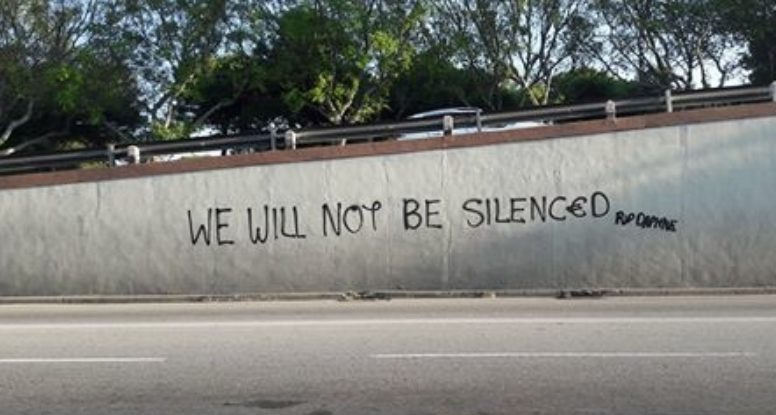The timing of the government’s focus on the Press Act yesterday, while the European Parliament was voting on a resolution on the rule of law in Malta, smacks of diversionary tactics.
It was no surprise that TVM evening news led with a focus on the watered down Bill while the strong vote in the EU parliament yesterday was in second place.
After Caruana Galizia’s assassination, it would have been suicidal for the government to press on with the press law as originally proposed, which was met with harsh criticism.
With the world’s eyes on Malta, the least thing the government could afford is to further tarnish its reputation by appearing heavy handed with the press.
The move by the government yesterday was meant to create a favourable impression, leading to articles such as the one in Malta Today entitled, “With more freedom, comes greater responsibility“.
What increased freedom?

Times of Malta journalist Keith Micallef on Twitter on 17 October.
It is clear that public pressure led to a revision of the original proposal presented in February.
Most of the positive news in yesterday’s government announcement consisted in the government backtracking from its original position to raise civil libel damages to €20,000. Maximum damages have been retained at the present €11,640, which is already a considerable amount.
Moreover, the Bill – not yet published in full – removes the obligation proposed in the original document for online sites to register with the government after the original proposal was met with outrage.
It also prohibits the issue of precautionary warrants in defamation cases, meaning warrants such as those sought earlier this year by Economy Minister Chris Cardona against Daphne Caruana Galizia would no longer be permitted.
This does not address one major reality – the wielding of influence and sheer manipulation of the media by the Party in government. Possibly, after Caruana Galizia’s execution the government felt safer in relaxing its formal grip on the media. Caruana Galizia was beyond any government control.
Who needs increased controls when the government enjoys control of the national broadcasting service and wields influence on the independent media, while undermining the credibility of critical journalists who are immediately tagged as supporters of the Nationalist Party?
It is also noteworthy that Labour MP Manuel Mallia called for “an investigation into the FIAU whistleblower”. The contradiction is obvious, while relaxing media laws – such as the removal of criminal libel – the whistleblower in the Pilatus Bank controversy is served with an arrest warrant.
The law does not protect Maltese journalists from foreign pressures, something which earned a mention in the approved EU Parliament resolution approved yesterday which notes that “media outlets in Malta have reported coming under severe pressure from Pilatus Bank, which is at the centre of money laundering allegations, to retract or remove stories concerning that bank”.
Ultimately the future of media freedom in Malta will depend on the integrity of our journalists and their ability to keep sufficient distance from the powers that be to continue honouring their obligation to speak truth to power and to refrain from engaging in orchestrated spin and diversions. This is what we, as journalists, owe Daphne Caruana Galizia one month after her brutal assassination.













